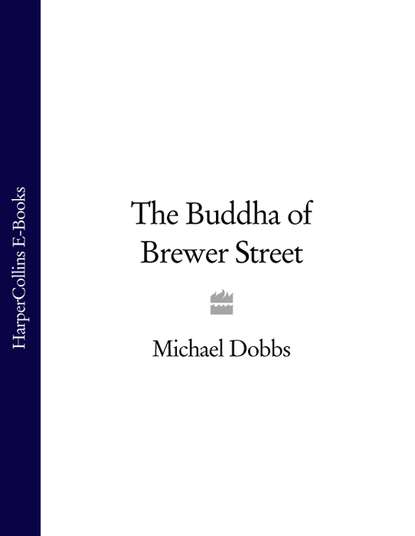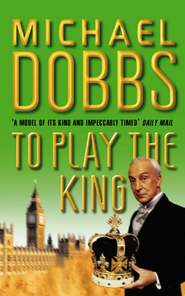По всем вопросам обращайтесь на: info@litportal.ru
(©) 2003-2024.
✖
The Buddha of Brewer Street
Автор
Год написания книги
2018
Настройки чтения
Размер шрифта
Высота строк
Поля
‘But I don’t understand. Why is a Tibetan man of peace passing on the musings of a Chinese warlord?’
‘There’s a letter in the back.’
It was written in a bold hand.
‘My dear Thomas Goodfellowe, I have been interested in military strategy since I played with lead soldiers in the Potala Palace as a child. In those days I always won! We Tibetans were once a warrior race, but now we must fight our battles by other means. Sun Tzu often shows how. I thought he might interest you. Especially since the future has a Chinese face.’
That phrase again. It was dated and signed in Tibetan script that meandered like an ancient river in flood across the page.
‘Bit like the bloody Times crossword, isn’t it?’ Mickey interjected. ‘“The future has a Chinese face.” Does that mean he’s given up?’
Goodfellowe stared at the letter. ‘No, of course he hasn’t given up. Can’t have given up. This is all about continuing to fight the battle, but by other means.’
‘What other means?’
He shook his head. ‘Dunno.’ He placed the book in a desk drawer and turned to the pile of correspondence. ‘And since he’s not a constituent I don’t suppose we’re ever going to have the time to find out. His battles aren’t our battles. They weren’t when I was a Minister, and can’t be now I’ve no more influence than yesterday’s weather forecast.’
Goodfellowe was wrong, of course. He would come to realize that, as soon as he discovered the letter was probably the very last thing the Dalai Lama had written in this life.
Mo could scarcely contain his frustration. He had rushed into the Ambassador’s office, perhaps a trifle enthusiastically but only in order to pass on the good news. Yet he had been forced to stand, humiliated, before her desk while the ancient warrior prattled on about courtesy and youth. It wasn’t as if she had been busy with anything of importance, merely rearranging the clutter of family photographs that dominated her desk.
‘A private secretary should know when privacy is meant to be respected. If they want to remain a private secretary, that is.’
She was constantly changing around those photographs, a daily ritual, like some old woman throwing fortune sticks in the temple. Faded sepia prints of her mother and father, revolutionaries who had met on the Long March, six thousand miles through central China to the caves of Shaanxi. Also one grandmother. Two aunts who had died on that march. Sisters. And of course her only daughter. A sickness her family had, only producing girls. The shame of the Lins.
‘Doors are meant for knocking on, not kicking down,’ Madame Lin lectured.
Mo hung his head, less in respect than in an attempt to hide the flush on his cheek. Listen to her! Kicking down doors? But that’s what the new China was about. The Ambassador was an old woman in an outdated world who had been left behind by the changes that were gripping their country. Sure there was corruption. And chaos. Hadn’t there always been? But now there was also something new. Opportunity. Open doors. Even if occasionally those doors needed a little forcing.
He took a deep breath. ‘Ambassador, I apologize.’
She waved her hand impatiently, leaving Mo unclear as to whether she was waving away his presence or his offence. He seized the moment.
‘But there is wonderful news that I wished you to have.’ His tone grew more eager. ‘The renegade Lama is dead.’
She became thoughtful, then grew unsettled, almost concerned. He had expected her to respond to the news, but not in this manner.
‘I thought you would wish to celebrate,’ he added, suddenly uncertain.
‘Then your presence is even less appropriate than I thought, Private Secretary.’ She always used his formal title when slapping him down. The deep frown was back, creasing her forehead.
‘I don’t understand, Ambassador.’
‘The first perceptive thing you’ve said all day.’
She was unusually brittle this morning. More bowel trouble, perhaps. Best to pacify. He bowed. ‘It would be an honour if you would explain.’
How he hated this vast office at the heart of the Embassy. They might just as well have been back in old Beijing rather than at the centre of a thriving Western capital. When the new Ambassador had arrived it had been an opportunity to bring the place to life with some of the new colour and fashions that were coming out of Shanghai and Hong Kong, but the old woman had turned it into something fit only for the scrapbook of a dowager empress – heavy rosewood chairs complete with antimacassars, dark lacquer screens, heavy rugs, oppressive potted plants. No imagination. All imported from home, even the musty smell, which seemed to have been borrowed from some dank winter’s day in central Beijing.
Madame Lin walked across the room to stand silhouetted against the window, where she lit a cigarette and took the smoke down to the bottom of her lungs.
‘So the Lama is dead,’ she repeated.
‘Gone. Wiped away,’ Mo enthused.
‘No, that’s where you are wrong. Simply because he was an enemy you underestimate him.’
‘But there is nothing left to underestimate.’ He struggled to hide his exasperation, and was not altogether successful.
‘In life he was significant. Yet in death he is a still greater uncertainty. And we have enough uncertainty in China today to satisfy even the keenest sceptic. Which is why young men like you are in such a hurry, Mo.’
Her tone was chiding and he wasn’t entirely sure what she was getting at. Time to get back to the matter in hand. ‘You are suggesting he is more of a threat to us dead?’
‘While he lived we knew where he was, what he was up to. Our eyes were always upon him. But how can we follow him now?’
‘You can’t believe in the absurdity of rebirth?’ Mo was aghast. His training at the Foreign Affairs Institute in Beijing had been most specific on the point.
‘It doesn’t matter what I think. What matters is what millions of Tibetans think, and they believe he will come back to lead them. A new Lama. Like a Messiah. While they are waiting they will make trouble. And when he returns, whoever he may be, they’ll make even more trouble. The wind blows cold from those mountains.’
‘Then we must remain alert, Ambassador.’
She turned on him. ‘The question, Mo, is whether you will remain at all.’
‘Ambassador?’
‘You take me for a fool. That I cannot tolerate.’
He began to protest. She cut him short.
‘You steal antiques and artefacts from the Embassy, Mo. My Embassy.’
Thick cigarette smoke hung in the air, creating an atmosphere that was suddenly clinging and intensely claustrophobic. ‘Ambassador, I can assure you …’
‘You can assure me of nothing. I know, Mo. About how you’ve been moving antiques around the Embassy. To hide them. Sending them off to your cousin in Amsterdam and having them copied. Then selling the original, and returning the fake to the Embassy.’
She was by the fireplace now, with Mo still protesting.
‘Not true. Not true …’
As though to prove her point she picked up an earthenware cocoon vase from the mantelpiece, covered in devils’ eyes and subtle whorls and the encrustations of age. She held it shoulder-high for his inspection. ‘How old would you say, Mo? One thousand? Two thousand? Han dynasty, I think. Yes, two thousand years old.’
Then with remarkable dexterity for a woman of her age she lobbed it across the room in his direction. In alarm Mo reached out and snatched it from the air, juggling desperately with it for a few tangled moments. But he couldn’t hold it. It fell. And smashed to fragments.
‘Not even two thousand days, Mo. But a very effective copy, nonetheless. Your cousin is to be congratulated.’
Across the vast space which seemed to separate them their eyes met and locked, and a change came over Mo. The cringing of previous moments was replaced by something altogether more substantial. If the game was up, he decided, there was little point in continuing to be horsewhipped by a woman. ‘Ambassador, I believe that is the first compliment you have ever paid me or my family.’
She ignored his impudence. ‘Why, Mo? Why all this dishonesty?’











